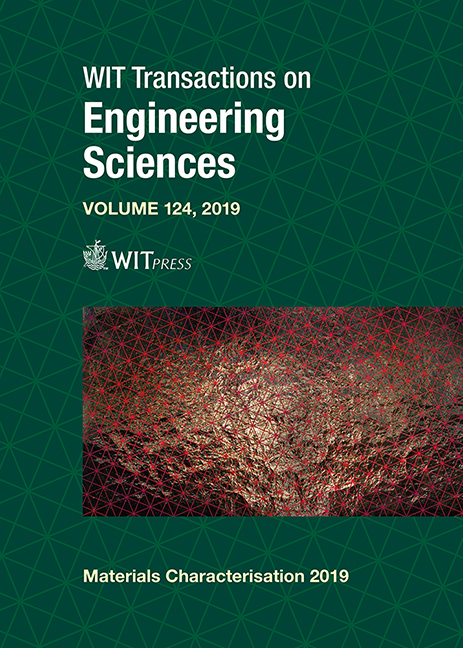INTERFACIAL SHEAR STRENGTH OF CARBON FIBER-REINFORCED POLYPROPYLENE USING UNEVEN CARBON FIBER UNDER A HOT–WET ENVIRONMENT FOR LONG-TERM SAFETY OF VEHICLES
Price
Free (open access)
Transaction
Volume
124
Pages
9
Page Range
133 - 141
Published
2019
Size
1,231 kb
Paper DOI
10.2495/MC190131
Copyright
WIT Press
Author(s)
KENICHI TAKEMURA, MAO MOCHIZUKI, HIDEAKI KATOGI
Abstract
We have previously reported on the improvement of the interfacial shear strength of carbon fiber-reinforced polypropylene (CFRPP) using carbon fiber with added resin particles (uneven carbon fiber). This study was conducted to assess the interfacial shear strength of CFRPP with uneven carbon fiber under a hot–wet environment for long-term safety of vehicles. The matrix was maleic anhydride grafted polypropylene. The matrix concentration was 10%. Reinforcement was done with uneven carbon fiber. Water absorption tests of CFRPP were conducted using uneven carbon fiber. The range of water temperature was from room temperature (RT) to 80°C. The maximum immersion time was 112 days. After water absorption testing, a micro-debonding test of CFRPP using uneven carbon fiber was conducted at RT. Fracture surfaces of carbon fibers were observed using scanning electron microscopy (SEM). Results show that when the maximum immersion time was 112 days, interfacial shear strength of water-immersed CFRPPs using uneven carbon fiber at RT, 50°C and 80°C decreased by 54%, 94% and 96% respectively, compared with that of non-immersed CFRPP using uneven carbon fiber. However, interfacial shear strengths of water-immersed CFRPPs using even and uneven carbon fiber under 50°C and 80°C showed almost no change at 112 days. SEM observations revealed large resin particles on the fracture surface of carbon fiber at temperatures higher than 50°C. Large resin particles and matrix on fracture surface of carbon fiber were found at 80°C. The viscoelasticity and interfacial adhesion property of water absorbing polymer matrix probably decreased when CFRPP using uneven carbon fiber was immersed at temperatures higher than 50°C. Therefore, the interfacial shear strength of CFRPP using uneven carbon fiber was strongly affected because of water absorption by polymer matrix and water penetration into interface between fiber and polymer matrix under a hot–wet environment.
Keywords
CFRPP, hot–wet environment, interfacial shear strength, long term, maleic anhydride grafted polypropylene, uneven carbon fiber





